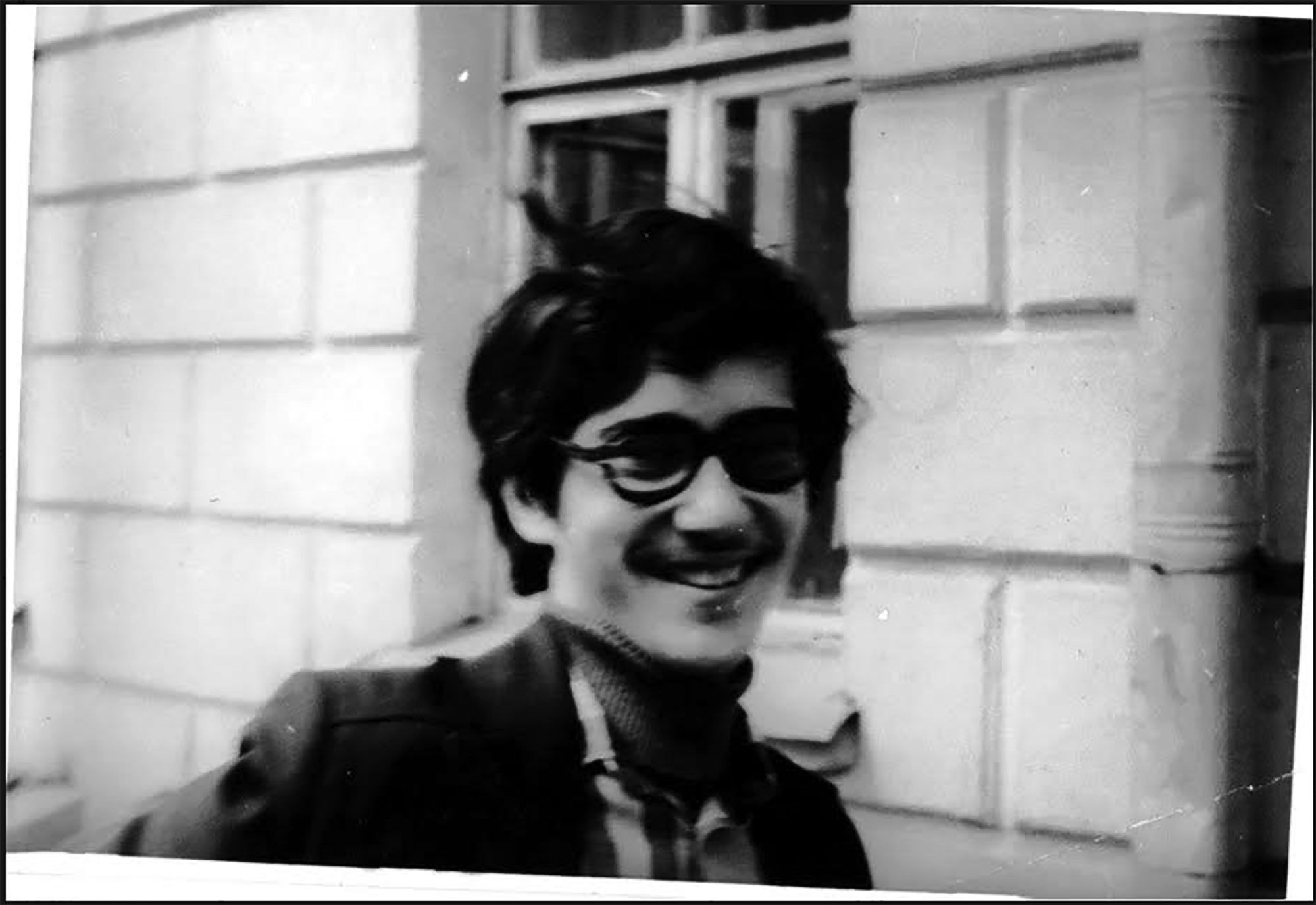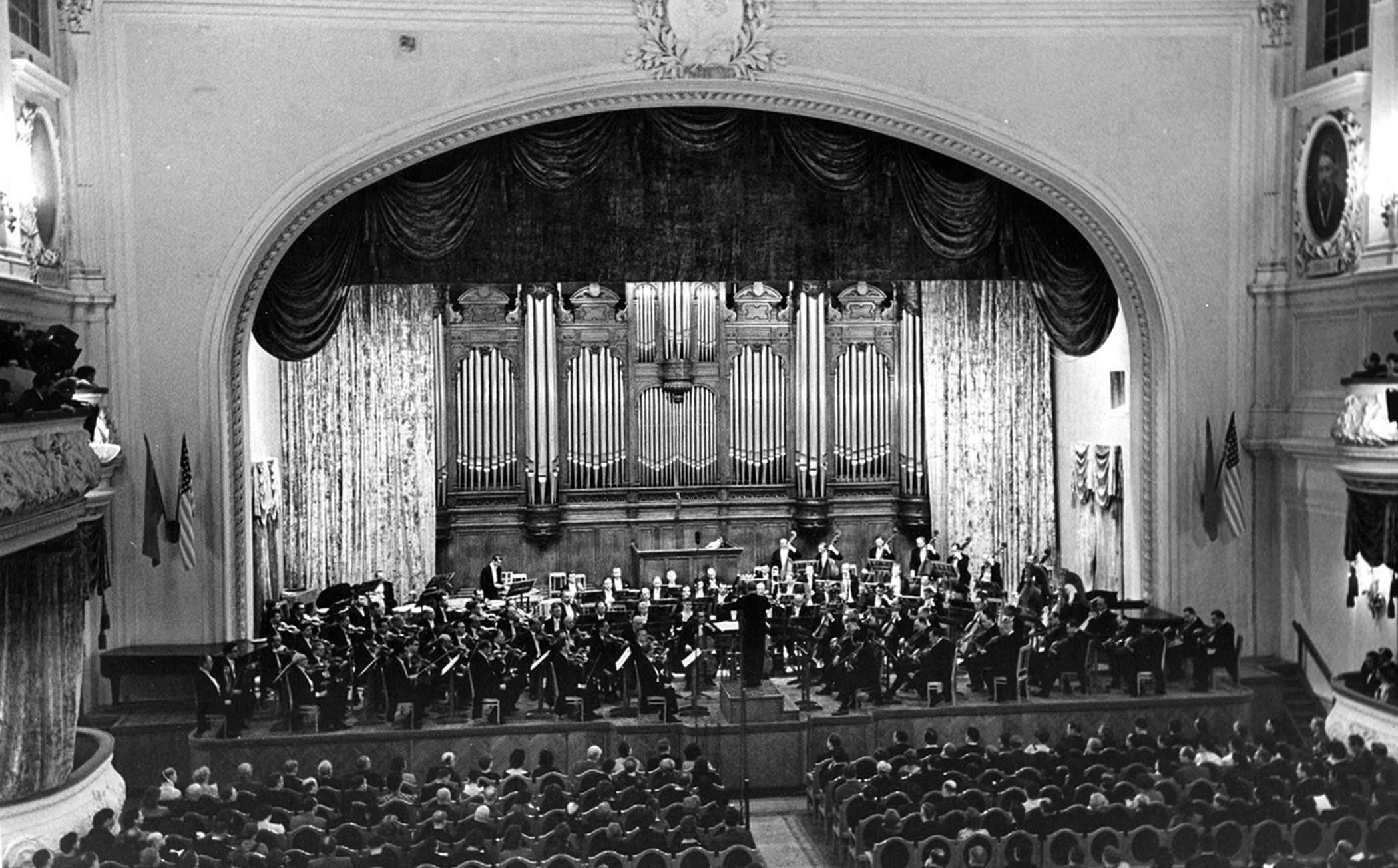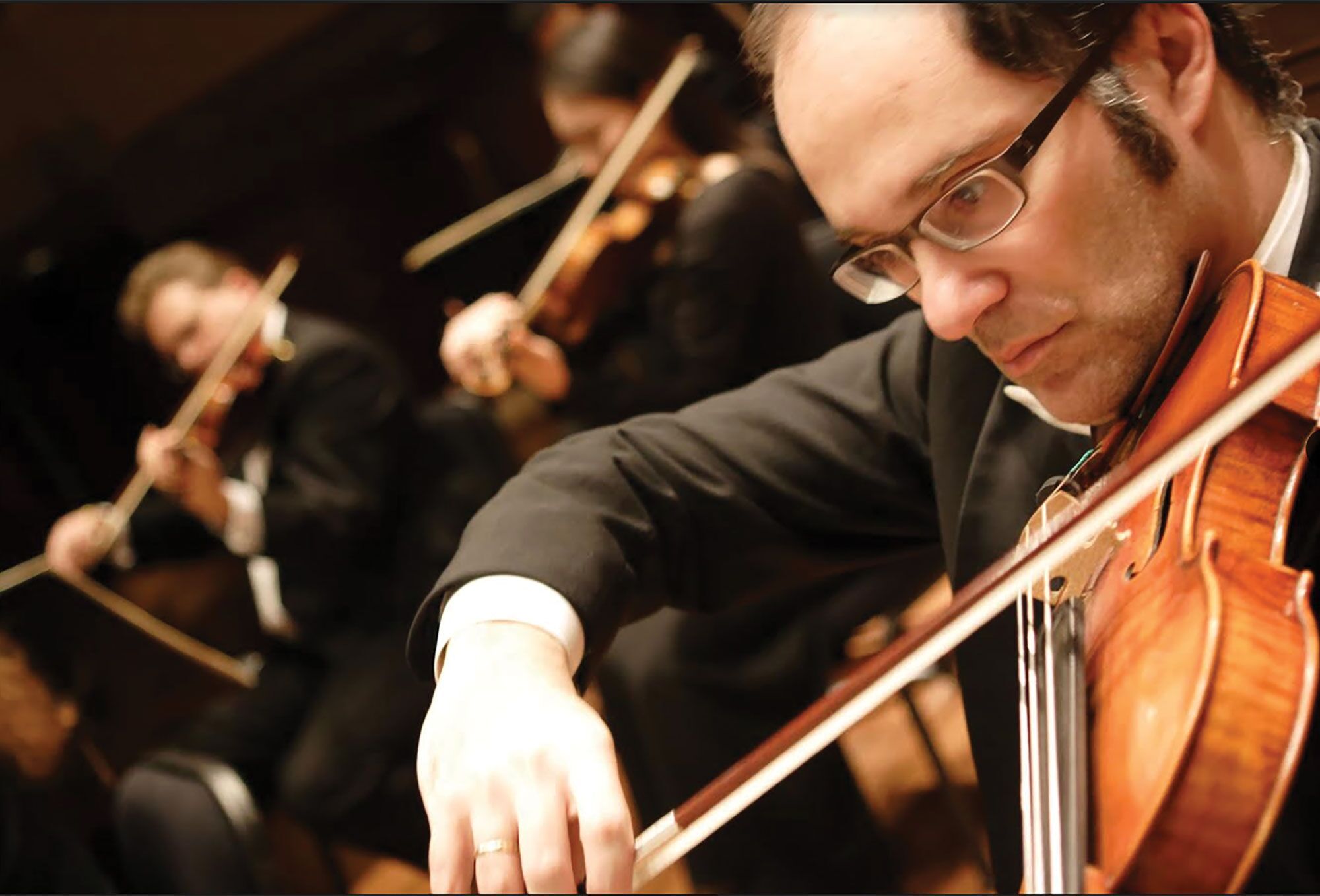Mikhail Shmidt emigrated from Moscow to the United States in 1990, stopping first in New York, where he worked as a freelance violinist before moving to Seattle to accept a position with the Seattle Symphony Orchestra in 1991.
“I was born in Moscow, and not to a musician’s family. My mother was a teacher and my father was an engineer. An average Russian Jewish family. And it was just accidentally discovered that I have musical talent. My parents were friends with a concert pianist. He heard me singing and said why don’t you take him to this audition to this very famous, very difficult to get into music school, because he’s got perfect pitch. My parents didn’t have any idea what they were talking about. Nonetheless, putting it in the very obvious context in other minority communities, you just have to push your child to succeed. So back in the Soviet Union if you’re Jewish and you have any kind of musical talent, that was one of the things the parents would just jump at the opportunity, trying to push you in that direction. I didn’t have much pressure because I really loved music, so I didn’t feel like my parents were forcing me into something I didn’t want to do.”
How did he choose the violin? “Actually it wasn’t my decision. Once you get into this Soviet Russian system of art education, you get into some huge, well-oiled machine. And then wheels start to turn. And so they’ll look at your hands, they’ll look at you and say, ‘Violin!’ You don’t have any choice. You just say, ‘Okay, violin it is.’ And then, if you’re not too good, in four years they’ll kick you out. Or it’s almost like a joke, in that system we had these kind of steps: ‘Okay, you’re not very good at the piano, maybe percussion?’ You have a choice of being kicked out of this elite school or moving down to some less desirable instrument in the Russian hierarchy.”
After finishing the equivalent of high school at the highest level, he had to choose between two college level music schools, the Moscow Conservatory or the Gnessin Institute. “The Moscow Conservatory was the most elite, the most famous one. And my teacher just told me, ‘This year they’re not going to take any Jews.’ Some years two or three could squeeze in, but not my year. And basically, if you’re not getting into the college, you would have to go automatically to the Army. So basically I had a dilemma. Will I try to get into the Moscow Conservatory? There was huge chance I wouldn’t get accepted. In some ways, the Moscow Conservatory would give you more opportunity, give you more prestige. But I went to the other one.”
Once he graduated from the Gnessin Institute, he played in the State Symphony Orchestra and with the Moscow Radio String Quartet. “That experience,” with the Radio String Quartet,“actually pushed me towards immigration. It was already almost the beginning of Perestroika, it was the late ‘80s. I was asked, this quartet which was based on the Moscow radio needed a violinist. They started to approach me, but then they said there was a problem: the Moscow radio is a highly ideological organization; they don’t actually take Jews. So we have to talk with somebody, and then they accepted me, and then I had to go to the boss who told me that as a Jew I have to understand what kind of responsibility I have. I’m doing my job, what’s that got to do with my being Jewish? It was constant, every day you would encounter it. Even back in summer camp: ‘You’re a cool guy even being a Jew.’ After a while I just said screw it.”
So he decided to emigrate. “It was building for a few years. I just felt like I couldn’t take it anymore, this constant anti-Semitism. I couldn’t take the system. Right out of college I worked in a great orchestra, and then I worked in a string quartet. But I just felt suffocating. And then I met this young woman and we became married. We’re not married anymore, but that was amazing for both of us. Because she was also Jewish, and we started to be each other’s cheerleaders. Maybe we should just do it. We all knew what steps we had to take to get out of that place. On a certain day you would go to the Dutch embassy, because the Dutch embassy represented Israel. So you go there, you leave your name and say we’re interested, and you wait. And you just hope that nobody was stealing your mail to prevent you receiving that first paper, which was an invitation from some mysterious Uncle Chaim from Tel Aviv who wants to reunite with his beloved nephew. Some people have a real relative but a lot of people didn’t have really close relatives in Israel. So it was this game. The Soviet government knew that it’s completely fake. Jews were always pawns in this geopolitical game. But by that time because it was already late ‘80s, Gorbachev was in power or three or four years, so at that point nobody even cared.”
Life in the United States has exceeded his expectations, as he is now the first violin for the Seattle Symphony Orchestra. And, with his second wife, he has also found a deeper connection with Judaism. “When our son was born that was a huge thing. We joined the temple, and he went through the bar mitzvah thing. I still consider myself pretty much secular, but we never miss the High Holidays. I feel very proud of who I am.”



